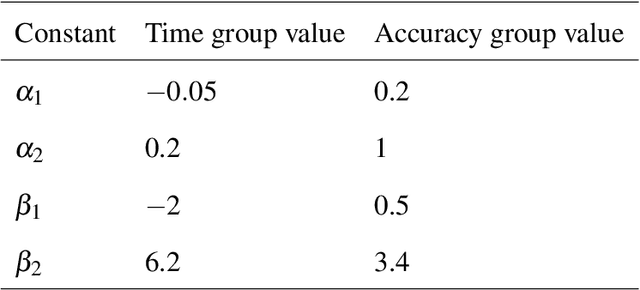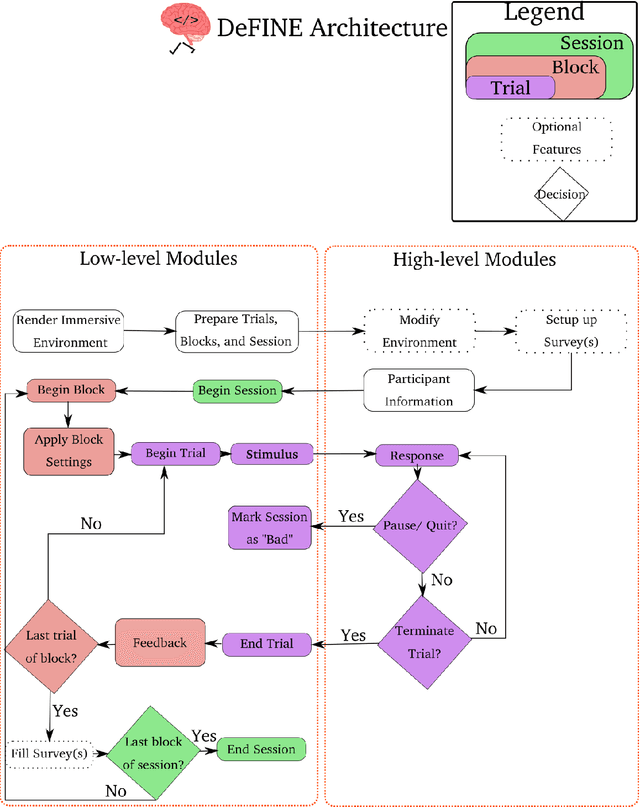DeFINE: Delayed Feedback based Immersive Navigation Environment for Studying Goal-Directed Human Navigation
Paper and Code
Mar 06, 2020



With the advent of consumer-grade products for presenting an immersive virtual environment (VE), there is a growing interest in utilizing VEs for testing human navigation behavior. However, preparing a VE still requires a high level of technical expertise in computer graphics and virtual reality, posing a significant hurdle to embracing the emerging technology. To address this issue, this paper presents Delayed Feedback based Immersive Navigation Environment (DeFINE), a framework that allows for easy creation and administration of navigation tasks within customizable VEs via intuitive graphical user interfaces and simple settings files. Importantly, DeFINE has a built-in capability to provide performance feedback to participants during an experiment, a feature that is critically missing in other similar frameworks. To demonstrate the usability of DeFINE from both experimentalists' and participants' perspectives, a case study was conducted in which participants navigated to a hidden goal location with feedback that differentially weighted speed and accuracy of their responses. In addition, the participants evaluated DeFINE in terms of its ease of use, required workload, and proneness to induce cybersickness. Results showed that the participants' navigation performance was affected differently by the types of feedback they received, and they rated DeFINE highly in the evaluations, validating DeFINE's architecture for investigating human navigation in VEs. With its rich out-of-the-box functionality and great customizability due to open-source licensing, DeFINE makes VEs significantly more accessible to many researchers.
 Add to Chrome
Add to Chrome Add to Firefox
Add to Firefox Add to Edge
Add to Edge